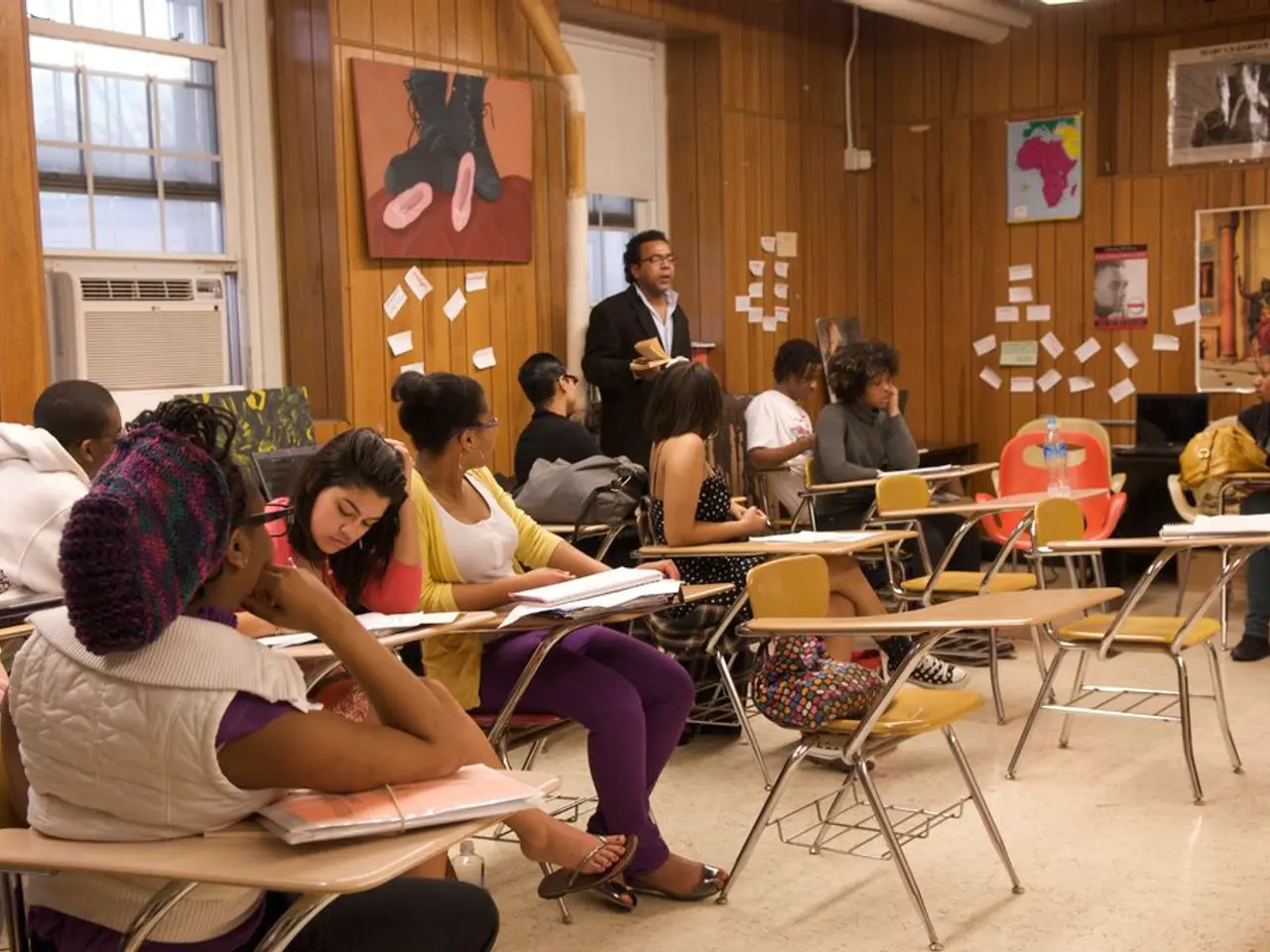Artificial Intelligence in Education Shifts Stereotype: AI Encourages a New Learning Approach, Challenging Beliefs About Lack of Cognitive Skills Development Among Scholars
Dr. Amina Yonis, a renowned online content creator and founder of The Page Doctor, an academic platform supporting over 2 million university students, encourages students to view AI as a tool to augment their learning experience rather than a replacement for human expertise and intellectual effort.
In the past year, AI tools for students and academics have gained popularity, with platforms like ChatGPT, R Discovery, Bard, and others becoming common choices. However, the media's portrayal of AI as a threat to human intelligence has fueled concerns about its potential to replace human educators and undermine traditional learning methods.
Dr. Yonis emphasizes that AI can help students streamline their workflow, allowing them to focus more on higher-order cognitive tasks and strengthening their critical thinking abilities. Her platform, The Page Doctor, offers features like 'Paraphrase', 'Trim', 'Templates', and 'Make Academic' to aid in academic writing, demonstrating the ethical use of AI in education.
However, some academics have expressed concerns about the potential impact of AI on student learning, fearing it could promote laziness and limit critical thinking skills. To address these concerns, ethical considerations must be prioritized in AI systems used in education.
Key ethical considerations include algorithmic bias and equity, data privacy, academic integrity, human oversight, transparency and ethics training, inclusive practice, and policy development. Best practices for integration involve comprehensive teacher professional development, developing institutional policies, employing AI to reduce teacher workload, engaging stakeholders, encouraging critical thinking, using AI-powered adaptive learning, and promoting responsible use by both faculty and learners.
Examples of AI tools for academic productivity and writing assistance include ChatGPT and GPT-based tools, Grammarly, AI-powered citation generators, text-to-speech and speech recognition software, adaptive learning platforms, and AI note-taking and summarization tools. These tools enhance productivity and writing but require ethical use policies and critical engagement to avoid misuse or over-reliance.
In summary, successfully integrating AI in education demands a balanced, ethical approach that combines clear policies, teacher training, student guidance, and inclusive technology use to maximize benefits while mitigating risks. Dr. Yonis's content, with over 11 million views and her status as the first female scientist on YouTube, serves as a testament to the potential of AI in education when used responsibly and ethically.
- Dr. Amina Yonis's platform, The Page Doctor, provides writing support and academic translation services, offering features like 'Paraphrase', 'Trim', 'Templates', and 'Make Academic' to aid in academic writing, demonstrating the ethical use of AI in education.
- Despite the surge in AI tools for academic productivity and writing assistance such as ChatGPT and GPT-based tools, Langauge editing, AI-powered citation generators, there remains a necessity for academic integrity and human oversight to ensure responsible use and promote critical thinking.
- As AI tools like ChatGPT and other technology-based education resources become more prevalent, it's crucial to prioritize ethical considerations, such as algorithmic bias and equity, data privacy, human oversight, transparency, and ethics training to promote inclusive practice and policy development.
- To fully leverage AI as a tool for writing assistance and learning support, it's essential to encourage academic-and-self-development, adopting a balanced approach that prioritizes teacher training, student guidance, and ethical use guidelines to maximize benefits while mitigating the risks associated with AI integration in education.




